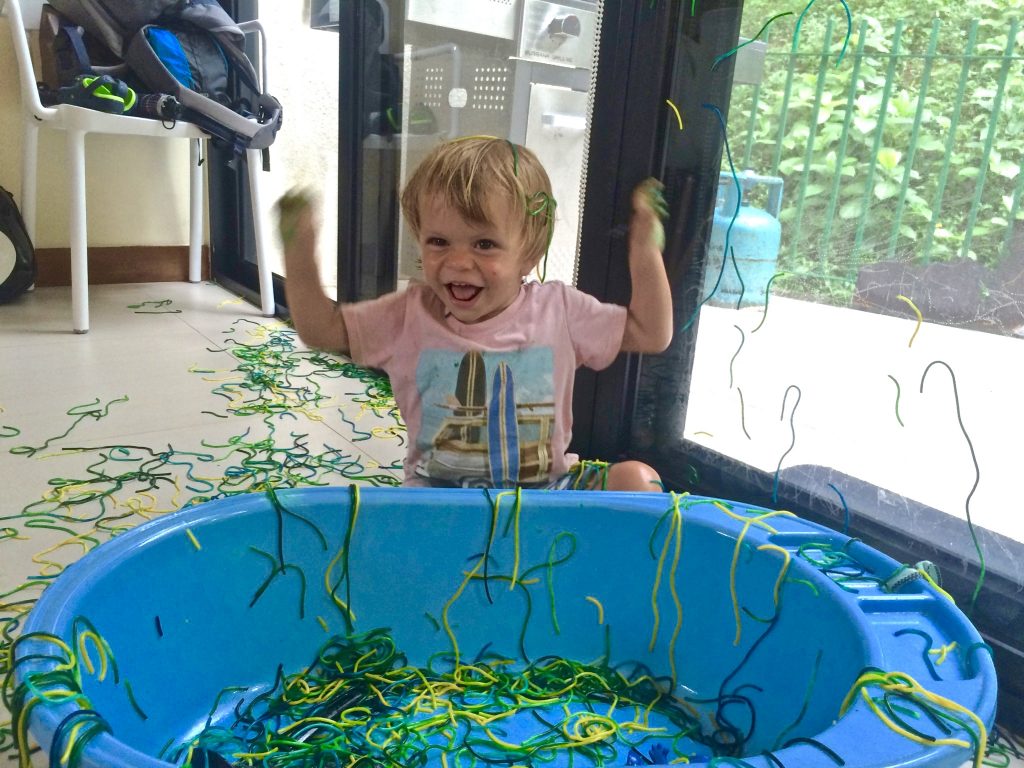If you’re like me, you’re not in the place, doing the things, thinking the thoughts, with the people and doing the work you planned to be 5 years ago. But you may also be happy. In fact, my life is more like what I was envisioning 10 years ago, and less like what I had envisioned from my perch 5 years ago. It’s exponentially different from that moment of prognostication most recently because one of the most important people in my life did not exist 5 years ago. Boom.

I’ve had an aversion to 5-year plans because they don’t really work. These plans suck at being a tool that will reliably get us to a happier, better, “more like I want the world to be” place. At best they get us moving, and I don’t mean to discount the value of action.
Most, or some of us know when we lay these plans, that they are sort of guidelines that we will work towards but are not really imagining they will play out exactly as we had envisioned because we have had at least an iota of world experience and from simple pattern recognition, we are nexting (simple predictions about what follows next) that this will be the case.
Then there is the pressure. If my predictions about what’s going to make me happy, (people, place, activity, money, time) have been so off target in the past, how am I going to come up with the perfect solution now for my future self, that will cause him to look back on my greatness and foresight with admiration and deification for being so insightful as to have set this golden path? This conundrum belays the paralysis that leads us to a default level of proactivity for most humans, the accidental discovery.
3 reasons humans are terrible at predicting what we need to do to get to an outcome.
- We are compelled to predict by our biology, and this act gives us great pleasure. (for more information and hilarity on this check out Dan Gilbert’s book “Stumbling on Happiness” ) Due in part to this bio compulsion, we predict without responsibility.
- We base our predictions on assumptions of what is reasonable today. The future exists outside of what we can expect from todays reasoning. If the outcome is occurring sometime in the future, the conditions under which the outcome is achieved don’t exist yet. This is like writing a recipe for a dish with ingredients from another planet we haven’t discovered yet and hoping it becomes lasagne.
- We have never been to this outcome before. Therefore it’s a journey rather than a tour. There is no single route to be followed as if on a map. Just because it worked in the past does not mean it will work today or tomorrow, or that it happened the way we think it did in the past.
This is not an essay against the merits of long-term thinking. I hope that it’s quite the opposite. If we are to achieve outcomes that take a long time to accomplish (and I’ll leave that up to your current perspective to synthesize), we need to catch up to a way of thinking that’s at pace with the world we live in. (For more on that check out longnow.org)
If we really are so bad at predicting what will get us from a to b, what if we embrace the reality that the future is uncertain and that we will face constant unrelenting change. If we set our stake in terms of what we are committed to, we can conduct ongoing experiments that produce results. We can determine through feedback if this course of action is taking us closer to that outcome or not. This type of experimentation + commitment allows people and organizations to be constantly evolving, in a way that honors the reality of change that we observe. It also allows us to leverage more of what exists in the moment, as we are not ever tied to a single way.
So what does this look like? simplified
- Figure out what you want. An outcome that is definable and measurable.
- Make a commitment to testing this outcome for some period if time. (4 months, 6 months)
- Figure out what are the 20% of activities you would need to do over 1-2 weeks that you imagine would produce the highest returns in getting you to that outcome.
- Go out and accomplish them
- Look at the feedback: what doors have opened? What do I know now that I didn’t know then? What has changed? How strong is my commitment? How can I get to that outcome 10x faster? How can I 10x the outcome?
- Constantly re-evaluate the outcome against what we learn. Is this still the outcome I am committed to? If not, what outcome am I now committed to?
As we go through the process, we constantly define, learn, recommit, and calibrate. These are all things that we would be doing anyway in a 5-year plan, but this method accepts those realities intrinsically.
Here’s the takeaway: the way you imagine you’ll get there when you start off is not the way you will arrive. So act in a way that knows this, and leverages the certainty of uncertainty to create possibilities for accomplishing the outcome. If you’re waiting for the right plan, or for it to be perfect, you have permission to start now and discover your path along the way.
